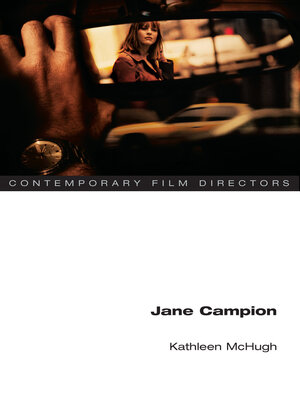
Sign up to save your library
With an OverDrive account, you can save your favorite libraries for at-a-glance information about availability. Find out more about OverDrive accounts.
Find this title in Libby, the library reading app by OverDrive.



Search for a digital library with this title
Title found at these libraries:
| Library Name | Distance |
|---|---|
| Loading... |
In considering Jane Campion's early award-winning short films on through international sensation The Piano and beyond, Kathleen McHugh traces the director's distinctive visual style as well as her commitment to consistently renovating the conventions of "women's films." By refusing to position her female protagonists as victims, McHugh argues, Campion scrupulously avoids the moral structures of melodrama, and though she often works with the narratives, mise-en-scene, and visual tropes typical of that genre, her films instead invite a distanced or even amused engagement.
Jane Campion concludes with four brief, revelatory interviews and a filmography. Campion spoke twice with Michel Ciment—after the screening of her short and medium-length films at the Cannes Film Festival 1986, and three years later, after the Cannes screening of Sweetie. Judith Lewis narrates a Beverly Hills interview with Campion that followed the release of Holy Smoke, and Lizzie Francke's interview, reprinted from Sight and Sound,centers on Campion's film In the Cut, adapted from Susanna Moore's novel.
A volume in the series Contemporary Film Directors, edited by James R. Naremore
| Contents Acknowledgments A Vision So Strange and So Strong Family Anthropology, Art, and Early Influence Film School, Global Feminism, and Friends The Early Films Seduction and Conquest Discipline Moments Story Film Features and A New Kind of Feminism Sweetie: Sisters and Family Trees An Angel at My Table: Making Oneself a "First Person" The Piano: Surrealism, Melodrama, and Mimetic Infection The Portrait of a Lady: From James to Jane Holy Smoke: The Uses and Misuses of Touch In the Cut: Adaptation, Grief, and Closure An Interview with Jane Campion: Michel Ciment An Interview with Jane Campion: Judith Lewis An Interview with Jane Campion: Lizzie Francke Bibliography Filmography Index | "This is an original, witty, and highly nuanced reading of Campion's films that takes into account a wide range of aesthetic and cultural influences on the filmmaker and her work. Wonderfully responsive to the films and informed by a non-dogmatic feminist sensibility, the book builds in power as it progresses. In sum: superb writing, superior scholarship, and stimulating—indeed, exciting—to read."—Vivian Sobchack, author of The Address of the Eye: A Phenomenology of Film Experience"Astute and well-structured study of Campion's films."—Library Journal
"McHugh supplies close . . . critical readings of Campion's films, offering thorough analyses of Campion's visual approach and recurrent subject matter—female self-expression, familial and sexual relationships, and gender roles, all of which evince the filmmaker's 'complicated relationship with feminism.'"—Booklist
|Kathleen McHugh is a professor of English and film, television, and digital media at UCLA. She is the author of American Domesticity: From How-To Manual to Hollywood Melodrama.







